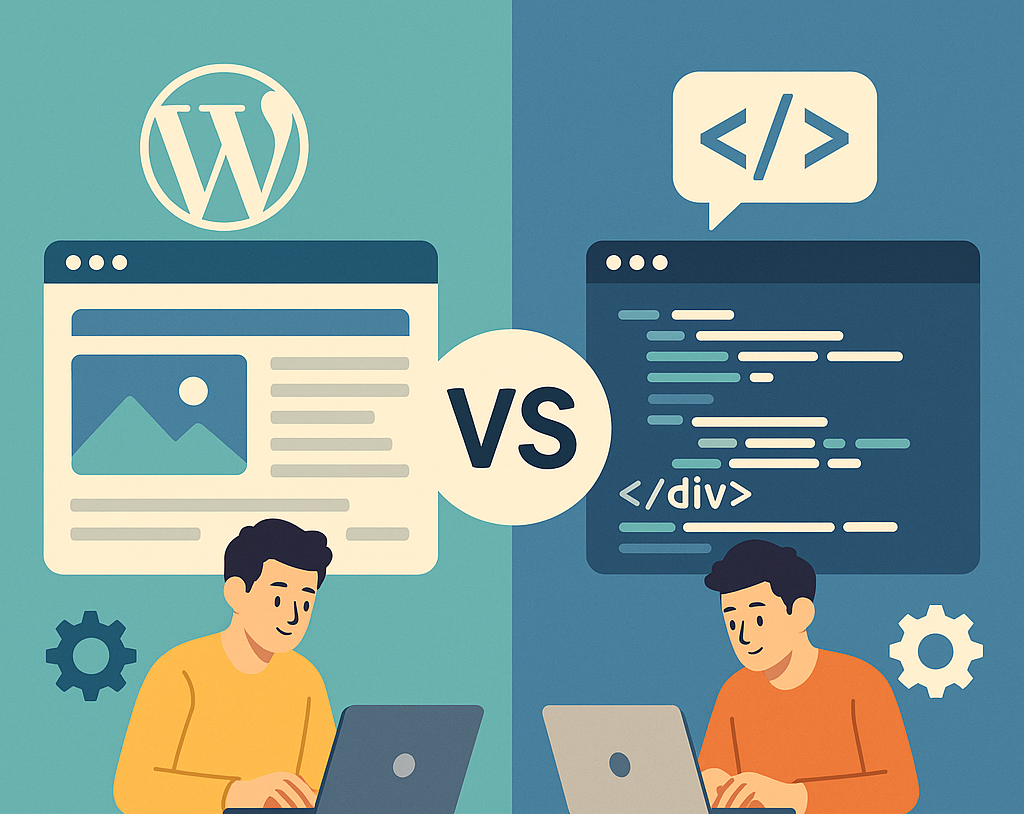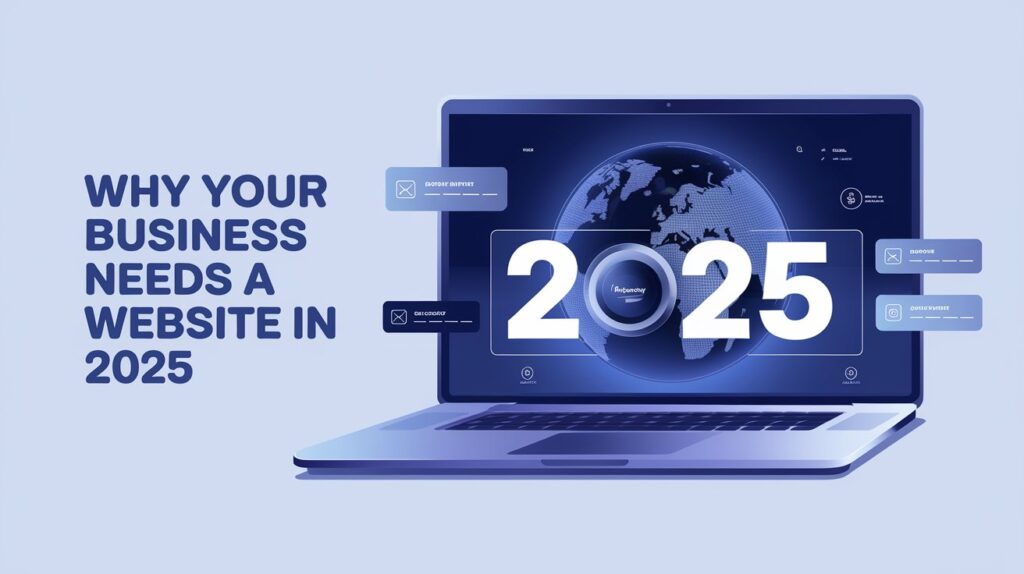How to Choose the Right Web Development Approach (CMS vs Custom)
The approach you choose for website development depends entirely on your client’s requirements, budget, and long-term goals. Understanding these factors will help you make the best decision for each project.
Small Businesses & Startups: Static Websites and CMS Solutions

Small businesses and startups typically need websites to showcase their services and portfolios. For these clients, we recommend CMS (Content Management System) development using platforms like,
- WordPress – The most popular CMS with extensive customization options
- Webflow – A visual web design tool with built-in CMS capabilities
- Framer – Modern design-focused platform for creating interactive websites
These solutions offer quick deployment, user friendly interfaces, and cost-effective maintenance.
Best Practices for CMS Development (WordPress)
When developing websites using CMS platforms like WordPress, consider these essential guidelines.
1. Avoid Nulled Themes & Plugins
Never use nulled (pirated) themes and plugins. Most nulled themes and plugins contain various types of malware that can compromise your website security and wipe all data. Always use legitimate, licensed themes and plugins.
2. Limit Plugin Usage (20-30 Plugins Maximum)
Keep your plugin count between 20-30 plugins. Excessive plugins can significantly slow down your website because,
- Multiple JavaScript scripts load simultaneously
- Server resources become strained
- Page load times increase dramatically
3. Choose a Fast and Secure Hosting Provider
Select a hosting provider that prioritizes speed and security. At Lavontech We recommend,
- Namecheap – Reliable hosting with good customer support
- Hostinger – Affordable hosting with excellent performance
Research hosting providers thoroughly, focusing on uptime guarantees, loading speeds, and security features.
Custom Web Applications & Software Solutions

For clients requiring web applications or custom software solutions, a custom coding approach is the way to go. This method provides complete control over functionality, design, and scalability.
The choice between CMS and custom development depends on client requirements and budget. If your client has a limited budget, CMS development is usually the more practical option.
Best Practices for Custom Development
When developing websites using custom coding, several factors determine your technology stack
Frontend Development
For frontend development, consider
- React.js with TypeScript – Provides type safety and excellent developer experience
- Vue.js – Lightweight and beginner-friendly
- Angular – Enterprise level framework with robust features
Backend Development
Choose your backend framework based on system requirements
- Spring Boot (Java) – Enterprise applications
- Node.js – JavaScript-based, great for real-time applications
- .NET – Microsoft ecosystem, excellent for enterprise solutions
- Django/Flask (Python) – Rapid development and data-heavy applications
Database Management
Select your database based on data structure and requirements
- MySQL – Traditional relational database
- PostgreSQL – Advanced relational database with JSON support
- MongoDB – NoSQL database for flexible data structures
- GraphQL – Query language for APIs (not a database itself)
Mobile Development
If mobile app development is required
- React Native – JavaScript-based, code sharing between platforms
- Flutter – Google’s framework with excellent performance
Hosting Decisions: Shared vs. Cloud Hosting
When choosing where to host your application, consider these factors
Application Size and Complexity
Small-Scale Applications
- Shared hosting or VPS hosting is sufficient
- Cost-effective for simple websites and basic applications
- Includes cPanel for easy management (SSL installation, email creation, database management)
Large-Scale Systems (POS, ERP, etc.)
- Cloud hosting is recommended
- Providers like AWS, Azure, or Google Cloud Platform
- Advanced console management with firewalls, load balancing, and scalable infrastructure
Budget Considerations
Shared/VPS Hosting
- Lower cost option
- Suitable for clients with limited budgets
- Basic security and limited scalability
Cloud Providers
- Higher initial costs but better value for complex applications
- Enhanced security features
- Superior flexibility and scalability
- Better performance under high traffic loads
Conclusion
Selecting the best approach for web development requires careful consideration of,
- Client requirements – What functionality do they need?
- Budget constraints – How much can they invest?
- Long-term goals – Will the website need to scale?
- Maintenance capabilities – Who will manage the site?
By evaluating these factors thoroughly, you can recommend the most suitable development approach that balances functionality, cost, and future growth potential. Remember, the “best” approach is always the one that meets your client’s specific needs while staying within their budget and timeline constraints.


